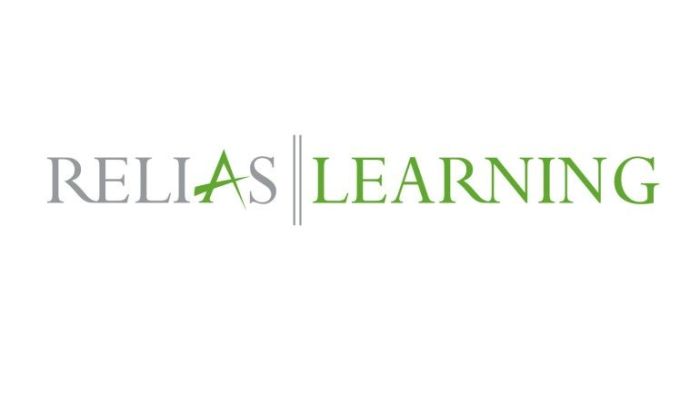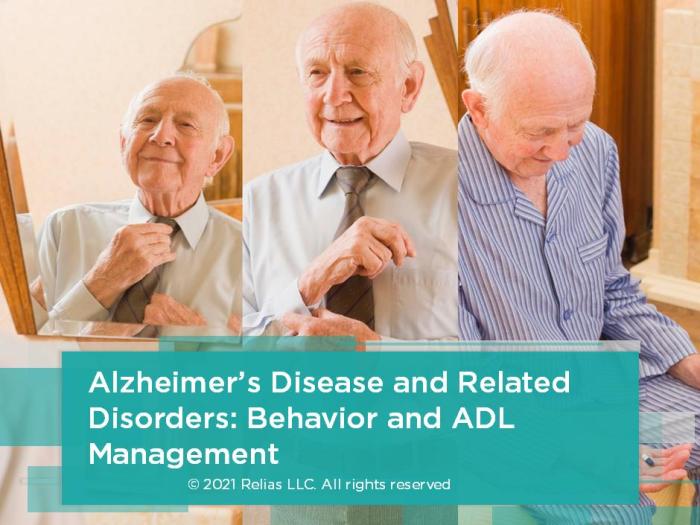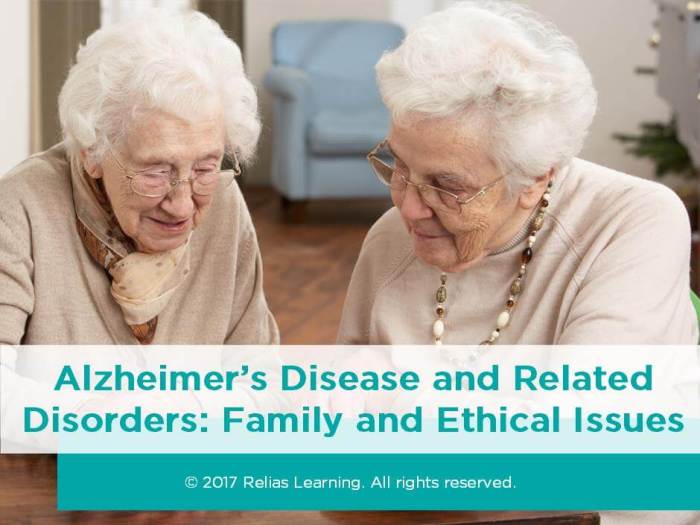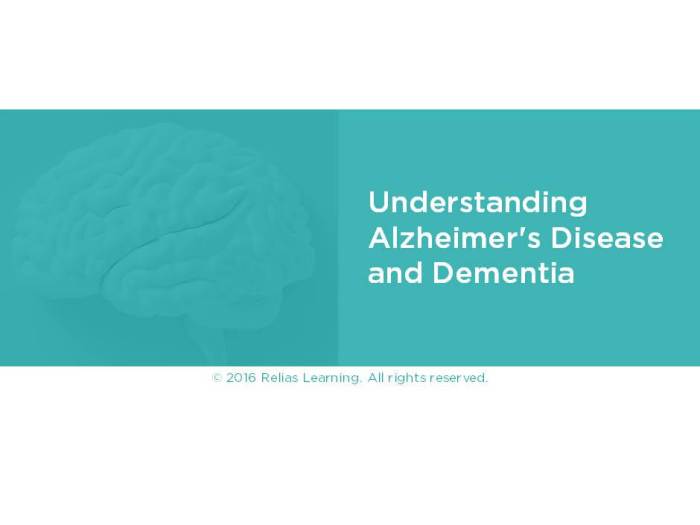Relias answers alzheimer’s disease and related disorders – Relias Answers: Alzheimer’s Disease and Related Disorders delves into the complexities of these debilitating conditions, providing a comprehensive understanding of their prevalence, causes, symptoms, and treatment options. With a focus on evidence-based information and practical guidance, this guide empowers individuals, families, and healthcare professionals to navigate the challenges of Alzheimer’s and related disorders.
As the prevalence of Alzheimer’s disease and related disorders continues to rise, it is essential to equip ourselves with knowledge and resources to address the growing impact on individuals, families, and society.
1. Introduction

Alzheimer’s disease and related disorders are a group of progressive brain conditions that affect memory, thinking, and behavior. Alzheimer’s disease is the most common type of dementia, accounting for 60-80% of cases.
Understanding these conditions is crucial as they have a significant impact on individuals, families, and society. Early diagnosis and intervention can help improve outcomes and enhance the quality of life for those affected.
2. Prevalence and Impact

Alzheimer’s disease and related disorders are prevalent worldwide, affecting millions of people.
- In 2020, an estimated 50 million people worldwide were living with dementia, with Alzheimer’s disease being the most common type.
- The prevalence of Alzheimer’s disease increases with age, with the majority of cases occurring in individuals over 65 years old.
- The impact of Alzheimer’s disease and related disorders is far-reaching, affecting individuals, families, and society as a whole.
3. Causes and Risk Factors
The exact cause of Alzheimer’s disease and related disorders is unknown, but several factors are believed to contribute to their development.
Genetics
- Certain genes have been linked to an increased risk of developing Alzheimer’s disease, including the APOE-e4 allele.
- However, having a genetic risk factor does not guarantee that an individual will develop the condition.
Lifestyle and Environmental Factors
- Lifestyle factors such as physical inactivity, poor diet, and smoking may increase the risk of Alzheimer’s disease.
- Environmental factors such as exposure to air pollution and head injuries may also contribute to the development of the condition.
4. Symptoms and Diagnosis: Relias Answers Alzheimer’s Disease And Related Disorders

The symptoms of Alzheimer’s disease and related disorders can vary depending on the stage of the condition.
Common Symptoms, Relias answers alzheimer’s disease and related disorders
- Memory loss that affects everyday activities
- Difficulty with language and communication
- Disorientation and confusion
- Changes in behavior and personality
- Loss of motivation and initiative
Diagnosis
Diagnosing Alzheimer’s disease and related disorders involves a comprehensive evaluation by a healthcare professional.
- Cognitive tests to assess memory, language, and problem-solving abilities
- Medical history and physical examination
- Imaging techniques such as MRI or PET scans to visualize the brain
5. Treatment and Management
There is currently no cure for Alzheimer’s disease and related disorders, but treatments are available to manage the symptoms and improve the quality of life for individuals with these conditions.
Medications
- Cholinesterase inhibitors and memantine are medications that can help improve memory and cognitive function in some individuals with Alzheimer’s disease.
Therapies
- Cognitive stimulation therapy and reminiscence therapy can help maintain cognitive function and improve engagement.
- Physical exercise and social activities can also benefit individuals with Alzheimer’s disease.
Lifestyle Interventions
- Maintaining a healthy diet, getting regular exercise, and managing stress can help reduce the risk of developing Alzheimer’s disease and improve overall well-being.
6. Care and Support

Individuals with Alzheimer’s disease and related disorders require comprehensive care and support.
Family Caregivers
- Family members often play a vital role in providing care for individuals with Alzheimer’s disease.
- Caregivers may need support and resources to manage the challenges of caring for a loved one with dementia.
Professional Care Providers
- Professional care providers, such as nurses and social workers, can provide specialized care and support for individuals with Alzheimer’s disease.
- Long-term care facilities can provide a safe and supportive environment for individuals with advanced stages of dementia.
7. Research and Future Directions
Research into Alzheimer’s disease and related disorders is ongoing, with the goal of finding new treatments and therapies.
- Current research focuses on understanding the underlying causes of these conditions and developing drugs that can slow or stop their progression.
- Future directions in research include personalized medicine and the use of technology to enhance diagnosis and treatment.
8. Resources and Information
Numerous resources and organizations provide information and support for individuals and families affected by Alzheimer’s disease and related disorders.
- Alzheimer’s Association
- National Institute on Aging
- Dementia Care Central
Quick FAQs
What are the most common symptoms of Alzheimer’s disease?
Memory loss, confusion, disorientation, difficulty with language, impaired judgment, and changes in mood and behavior.
What are the risk factors for Alzheimer’s disease?
Age, family history, genetics, head injury, and certain medical conditions.
What are the treatment options for Alzheimer’s disease?
Medications to manage symptoms, cognitive therapies to improve memory and thinking skills, and lifestyle interventions to promote overall health and well-being.